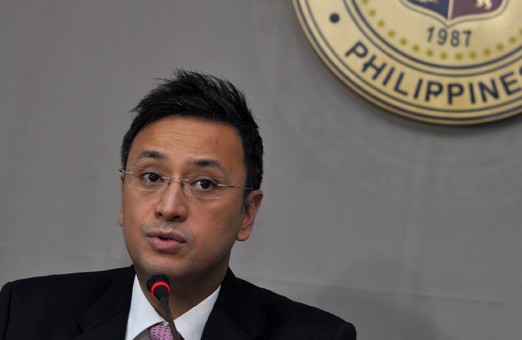Tax reforms useless if corruption in Customs, BIR persists—solon
The government’s proposed tax reform program would not do taxpayers any good for as long as corruption and other irregularities plague agencies involved in tax administration, a lawmaker said on Wednesday.
While saying that it was “fantastic” that the Department of Finance was “finally admitting that current tax system is regressive and antipoor,” Marikina City Rep. Romero “Miro” Quimbo said it would better to focus on reforming tax collection and administration instead of imposing additional taxes on the public.
“Kahit anong gawin natin bagong tax system o panibagong taxes na ating iimpose na ang tingin namin ay mas maraming mahihirap ang tatamaan, pero hindi naman natin binabago ‘yung katiwaliang nangyayari sa Bureau of Customs at Bureau of Internal Revenue, eh balewala ‘yung ating bagong taxes,” Quimbo said during the DOF briefing before the House ways and means committee.
(Even if there’s a new tax system or new taxes are imposed that affect the poor, but the corruption inside the Bureau of Customs and Bureau of Internal Revenue doesn’t stop, then the new taxes would be for nothing.)
“I totally agree that we have so many things to improve on, particularly on increasing revenue. But in the end, with just a quick look at the facilitation, you can see that the tax system is not progressive,” he added.
The revised tax reform program, as proposed in House Bill No. 4774, seeks to lower personal income taxes, broaden the value-added tax base, adjust excise tax on petroleum and automobile, and reduce excise and donor’s tax.
DOF said lowering the personal income tax rate and estate and donor’s tax will result in a P139.6-billion loss in revenue, and a gain of P302.1 billion from VAT base expansion, automobile and petroleum excise, and other complementary revenues. This brings the net gain to P162.5 billion by 2018.
READ: Gov’t to raise P206.8-B on first year of tax reform implementation—DOF
But Quimbo said the net gain from lowering personal income tax was “almost insignificant” compared to additional excise tax imposed on fuel and other oil products. Automobile excise and excise tax on petroleum will yield P31.4 billion and P120.9 billion, respectively, in 2018, the DOF said.
“The biggest source of smuggling really comes from oil smuggling. So dito manggagaling ‘yung pinakamalaking collection natin sa proposed tax reform. Pero kung alam nating dito rin nanggagaling ang smuggling, ang mangyayari dito, ‘yung mga nagbabayad na malaking korporasyon, sila ang magbabayad, at smugglers ang makikinabang,” Quimbo said.
(The biggest tax collection in the proposed tax reform will come from fuel and oil products. But if we know that this is the source of smuggling, what will happen here is that the huge corporations will pay and the smugglers will profit.)
“Hangga’t walang kaakibat na reporma sa pagpapalakad at pangongolekta ng buwis, balewala ‘yung bagong taxes natin na kokolektahin at tingin ko, hindi siya tamang solusyon. Solusyon siya na ang tatamaan ay mahihirap,” the lawmaker added.
(While there is no accompanying reform in the collection of taxes, the new taxes will be for nothing and I think it’s not the right solution. It’s a solution that will affect the poor.)
The DOF, however, maintained that gains from the lowering of personal income tax are more than enough to offset additional expenses from higher oil prices, car loan payments, and inflation, adding that motorists will still have fuel savings from the fuel price decline since 2011 despite the additional oil excise.
READ: Lowered income tax ‘more than enough’ to offset oil excise hike—DOF
“I’m not against any form of new taxation. I just want it to be effective and targeted,” Quimbo added.
Under the revised tax reform package, the following tax administration measures are being pursued: mandatory use of fuel marking, mandatory issuance of e-receipts, mandatory interconnection of large and medium firms point of sale machines and accounting system with the Bureau and Internal Revenue, mandatory use of GPS locks when transporting cargo from ports to economic zones and free ports, and the relaxation of bank secrecy for fraud cases. JE



















